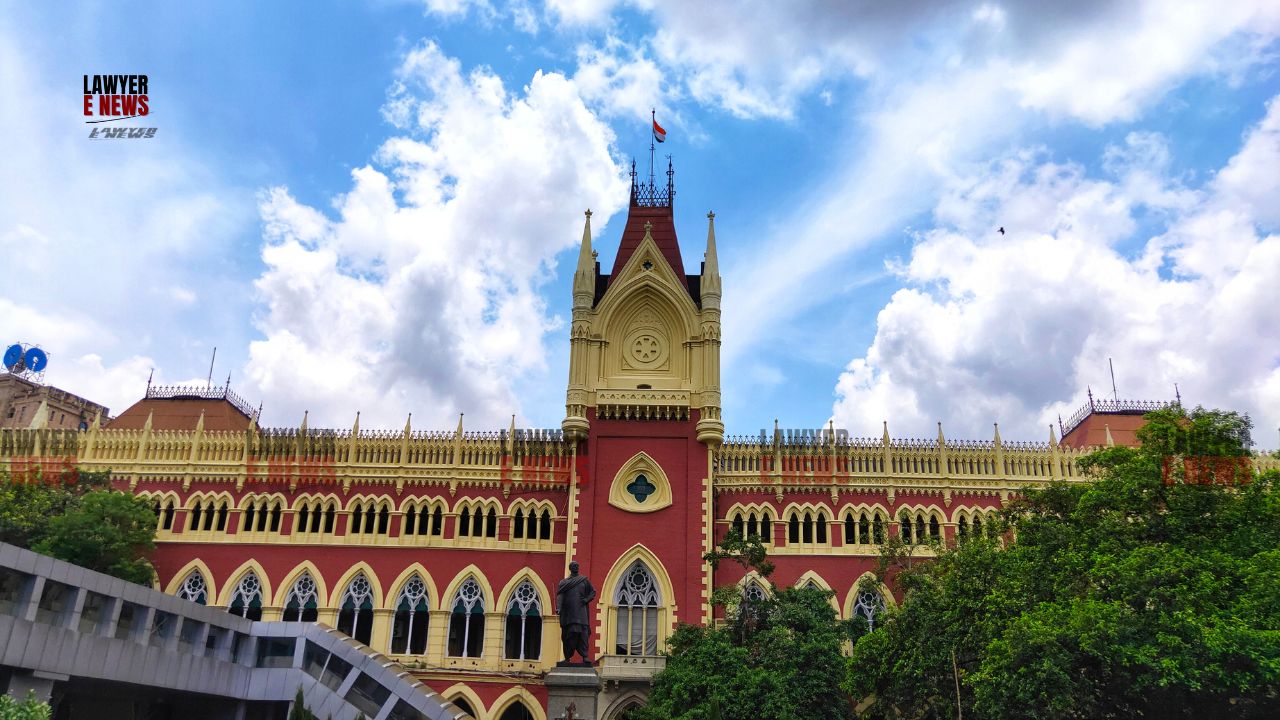-
by Admin
15 February 2026 5:35 AM



In a significant ruling, the Calcutta High Court, on November 20, 2024, dismissed a decades-long compensation claim by the owners of a Kolkata property against the Metro Railway for alleged loss of rent. The petitioners, Dilip Kumar Bajaj and another, had sought ₹47.13 lakh as compensation, claiming that Metro Railway construction work damaged their property, leading to the premature termination of a lease with Syndicate Bank. Justice Dr. Ajoy Kumar Mukherjee, however, upheld the findings of the Metro Railway Appellate Tribunal and ruled that the petitioners failed to establish a valid landlord-tenant relationship or a legally enforceable lease agreement with the bank.
The dispute began in the 1980s when Metro Railway construction work allegedly caused severe structural damage to the petitioners’ property at 170A Chittaranjan Avenue in Kolkata, a five-storied building housing Syndicate Bank as a tenant on the first floor. The petitioners claimed that the unsafe condition of the building, worsened by Metro Railway’s construction, forced Syndicate Bank to vacate the premises in 1992, leaving the petitioners without rent for the remaining ten years of the bank's purported 20-year lease.
After initially filing a compensation claim with the Metro Railway Competent Authority in 1993 under Sections 22 and 25 of the Metro Railways (Construction of Works) Act, 1978, the petitioners pursued multiple rounds of appeals and revisions before various forums, including the Calcutta High Court and the Supreme Court.
The petitioners based their claim on a letter from Syndicate Bank to the lessee, M/s Tee Jay Properties, dated October 15, 1984, which they argued constituted a 20-year sublease. The petitioners further asserted that when M/s Tee Jay Properties surrendered its lease in 1992, Syndicate Bank continued as a direct tenant under them. The claim hinged on proving that Syndicate Bank prematurely vacated the premises due to Metro Railway’s construction, depriving the petitioners of rental income for the remaining ten years of the lease.
Metro Railway contested the claim, arguing that no valid lease existed between the petitioners and Syndicate Bank, as no registered lease deed was ever executed, as required under Section 107 of the Transfer of Property Act, 1882, and Section 17 of the Registration Act, 1908.
Justice Mukherjee meticulously analyzed the evidence, particularly the letter from Syndicate Bank (Exhibit-4) and its clauses. The court found that the letter merely expressed an intention to execute a formal lease deed but explicitly required a registered lease agreement under Clause 15. The court ruled that without a registered lease deed, the arrangement between Syndicate Bank and the lessee could not be considered a legally valid tenancy.
"A lease of immovable property exceeding one year can only be created through a registered instrument as per Section 107 of the Transfer of Property Act and Section 17 of the Registration Act. In this case, no such registered lease was ever executed. Any payments made by Syndicate Bank were occupational charges and not rent under a lease agreement."
The petitioners argued that an earlier High Court remand order limited the Metro Railway Appellate Tribunal to determining the monetary extent of compensation, precluding it from re-examining the validity of the lease. Rejecting this argument, the court held that the remand order allowed for comprehensive adjudication, including issues related to the petitioners’ claims and evidence.
Justice Mukherjee emphasized that the doctrine of estoppel or res judicata did not apply, as the earlier findings were not final or conclusive. The court stated:
"The Tribunal was fully empowered to consider all aspects of the case, including the validity of the lease agreement, which is central to determining the petitioners’ entitlement to compensation."
Another significant factor in the court's decision was the petitioners' sale of the property in 2004 for ₹30 lakh. The court ruled that selling the property extinguished any claims for damages or compensation unless explicitly reserved in the sale agreement. Justice Mukherjee remarked:
"The claimants cannot claim double benefits—first from the sale proceeds of the property and again by seeking compensation for alleged losses prior to the sale. Such a claim is legally unsustainable."
The court reaffirmed the limited scope of its supervisory jurisdiction under Article 227 of the Constitution, which allows interference only in cases of manifest injustice, arbitrariness, or perverse findings. Justice Mukherjee concluded that the Metro Railway Appellate Tribunal's findings were based on sound evidence and legal principles and did not warrant interference.
"The Tribunal’s findings are neither perverse nor arbitrary. There is no material irregularity or misdirection in law. The petitioners have failed to establish any illegality in the Tribunal’s decision."
The High Court dismissed the petition, upholding the Tribunal’s order denying the petitioners' claim for compensation. The court observed that the absence of a registered lease, the sale of the property, and the lack of substantive evidence all rendered the petitioners’ claims untenable.
Date of Decision: November 20, 2024
